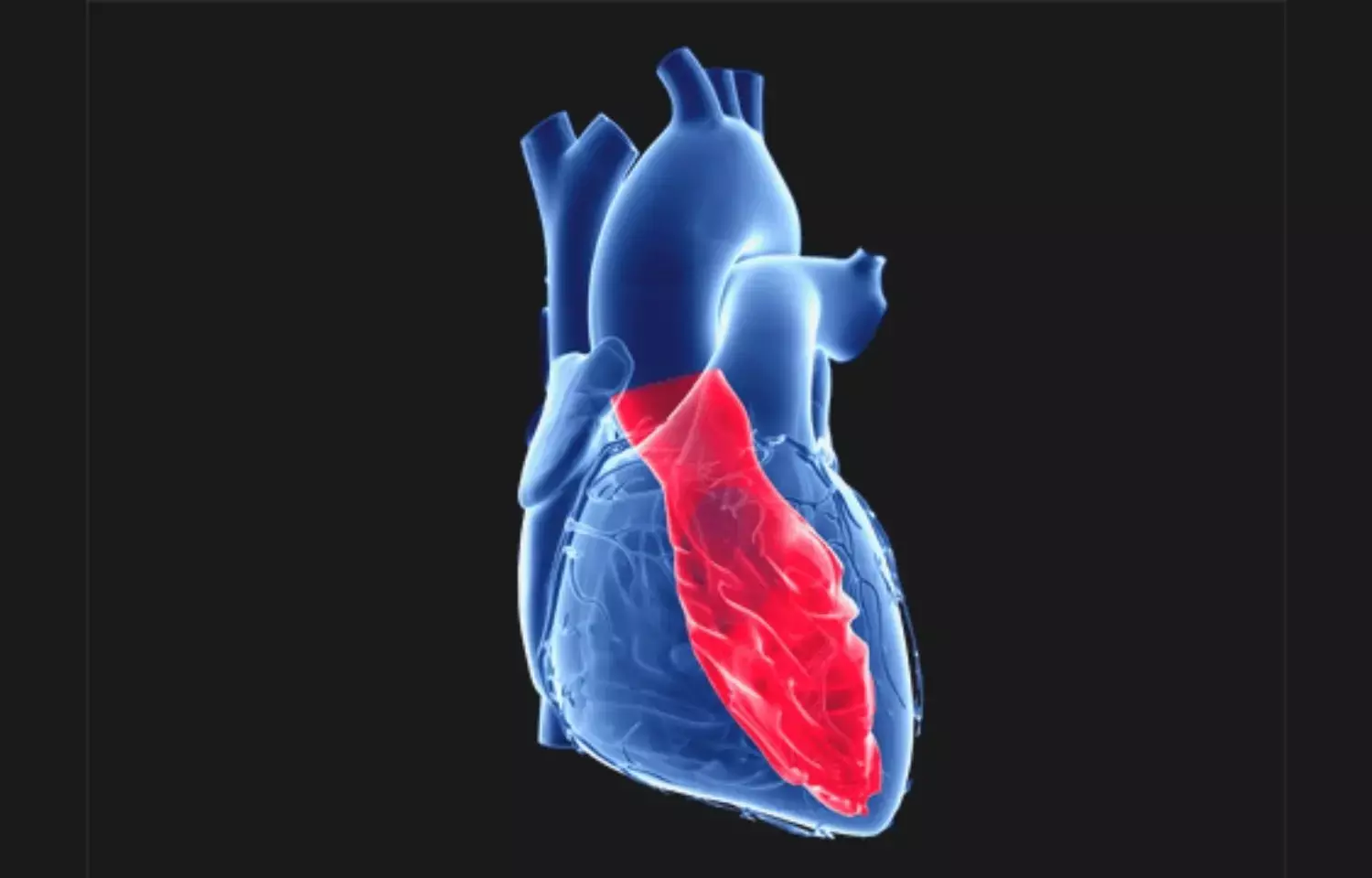- Home
- Medical news & Guidelines
- Anesthesiology
- Cardiology and CTVS
- Critical Care
- Dentistry
- Dermatology
- Diabetes and Endocrinology
- ENT
- Gastroenterology
- Medicine
- Nephrology
- Neurology
- Obstretics-Gynaecology
- Oncology
- Ophthalmology
- Orthopaedics
- Pediatrics-Neonatology
- Psychiatry
- Pulmonology
- Radiology
- Surgery
- Urology
- Laboratory Medicine
- Diet
- Nursing
- Paramedical
- Physiotherapy
- Health news
- Fact Check
- Bone Health Fact Check
- Brain Health Fact Check
- Cancer Related Fact Check
- Child Care Fact Check
- Dental and oral health fact check
- Diabetes and metabolic health fact check
- Diet and Nutrition Fact Check
- Eye and ENT Care Fact Check
- Fitness fact check
- Gut health fact check
- Heart health fact check
- Kidney health fact check
- Medical education fact check
- Men's health fact check
- Respiratory fact check
- Skin and hair care fact check
- Vaccine and Immunization fact check
- Women's health fact check
- AYUSH
- State News
- Andaman and Nicobar Islands
- Andhra Pradesh
- Arunachal Pradesh
- Assam
- Bihar
- Chandigarh
- Chattisgarh
- Dadra and Nagar Haveli
- Daman and Diu
- Delhi
- Goa
- Gujarat
- Haryana
- Himachal Pradesh
- Jammu & Kashmir
- Jharkhand
- Karnataka
- Kerala
- Ladakh
- Lakshadweep
- Madhya Pradesh
- Maharashtra
- Manipur
- Meghalaya
- Mizoram
- Nagaland
- Odisha
- Puducherry
- Punjab
- Rajasthan
- Sikkim
- Tamil Nadu
- Telangana
- Tripura
- Uttar Pradesh
- Uttrakhand
- West Bengal
- Medical Education
- Industry
Low-dose rivaroxaban could prevent LVT formation in anterior STEMI patients after PCI: JACC

China: Results from a recent study support the short-duration addition of low-dose rivaroxaban to DAPT for preventing left ventricular thrombus (LVT) formation in anterior STEMI patients after percutaneous coronary intervention (PCI). The study appears in the journal JACC: Cardiovascular Interventions.
Anterior ST-elevation myocardial infarction (STEMI) is tied to an increased risk of left ventricular thrombus formation. However, there is no clarity on the contemporary role of prophylactic rivaroxaban therapy. Considering this, Zhongfan Zhang, Department of Cardiology, China-Japan Union Hospital of Jilin University, Changchun, China, and colleagues aimed to investigate the effects of rivaroxaban on the left ventricle thromboprophylaxis in patients with anterior STEMI.
For this purpose, the researchers included 279 patients with anterior STEMI who had undergone primary PCI. They were randomly assigned in the ratio of 1:1 to receive low-dose rivaroxaban (2.5 mg twice daily for 30 days) and dual antiplatelet therapy (DAPT) or only DAPT.
LVT formation within 30 days was the primary efficacy outcome. Assessment of net clinical adverse events was done at 30 days and 180 days, including all-cause mortality, LVT, systemic embolism, rehospitalization for cardiovascular events, and bleeding.
Following were the key findings of the study:
- The addition of low-dose rivaroxaban to DAPT reduced LVT formation within 30 days compared with only DAPT (0.7% vs 8.6%; HR: 0.08).
- Net clinical adverse events were lower within 30 days in the rivaroxaban group versus those in the only DAPT group and remained relatively low throughout the follow-up period.
- There were no significant differences in bleeding events between the 2 groups in 30 days and 180 days. However, 1 case of intracranial hemorrhage (major bleeding) occurred in the rivaroxaban group within 30 days.
"Short-duration addition of low-dose rivaroxaban to DAPT could prevent LVT formation in patients with anterior STEMI following primary PCI," wrote the authors. "However, there is a need for a larger multiple-institution study to determine the generalizability."
Reference:
The study titled, "Prophylactic Rivaroxaban Therapy for Left Ventricular Thrombus After Anterior ST-Segment Elevation Myocardial Infarction," was published in the journal JACC: Cardiovascular Interventions.
KEYWORDS: JACC, rivaroxaban, DAPT, STEMI, dual antiplatelet therapy, left ventricular thrombus, ST-elevation myocardial infarction, Zhongfan Zhang, anterior STEMI, percutaneous coronary intervention, cardiovascular disease, bleeding
Dr Kamal Kant Kohli-MBBS, DTCD- a chest specialist with more than 30 years of practice and a flair for writing clinical articles, Dr Kamal Kant Kohli joined Medical Dialogues as a Chief Editor of Medical News. Besides writing articles, as an editor, he proofreads and verifies all the medical content published on Medical Dialogues including those coming from journals, studies,medical conferences,guidelines etc. Email: drkohli@medicaldialogues.in. Contact no. 011-43720751


